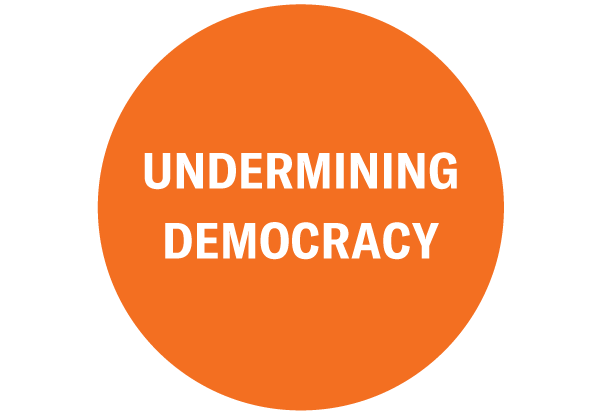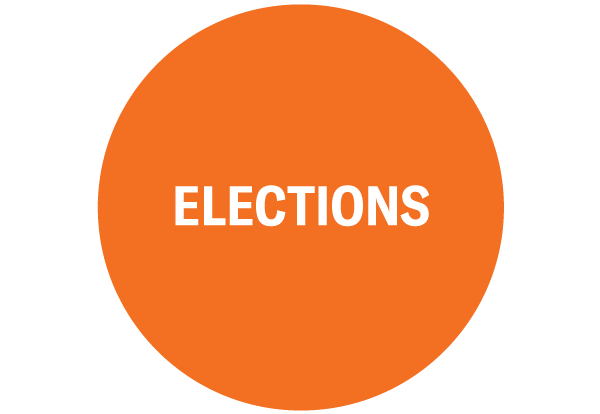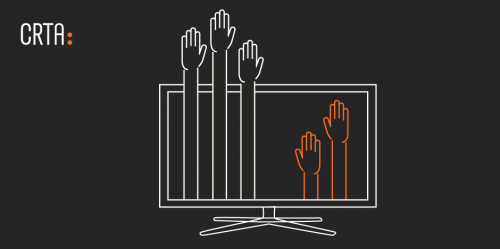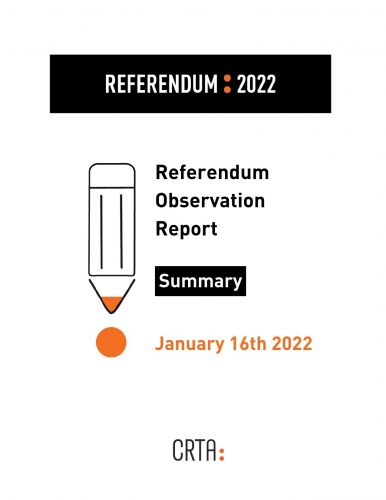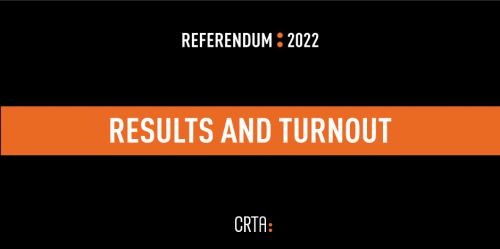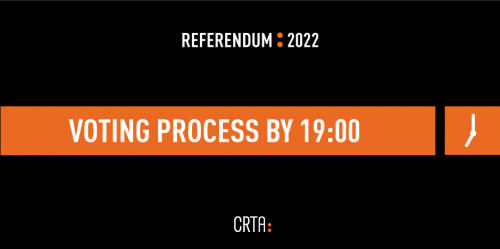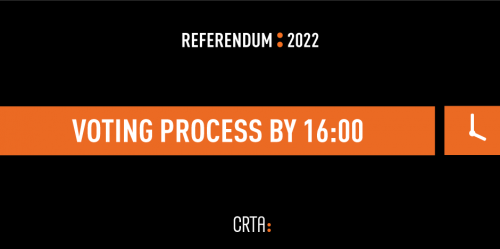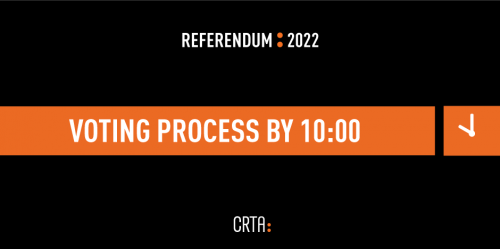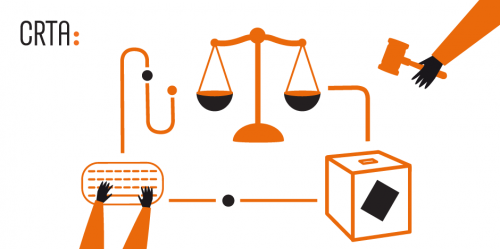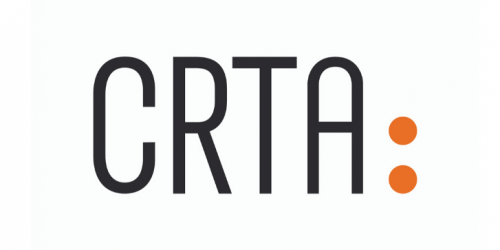Findings of the “political pluralism monitoring” in television programs, conducted by the Regulatory Authority for Electronic Media (REM) and presented to the public by the Temporary Supervisory Body for Media Monitoring, do not paint a credible picture of the objectivity and professionalism of the mainstream media scene in Serbia, or the representation of political actors in television reporting.
The referendum was organized within short deadlines, with changes of the law regulating the conduct of the referendum only several days before it was officially called, contrary to international democratic standards.1 The period of the referendum campaign was marked by growing socio-political tensions, as well as the timing of the referendum, that was organized just few months before the regular presidential and Belgrade elections, and extraordinary parliamentary elections, announced for April 2022.
On the basis of 98 percent of processed sample, a total of 57,4 percent of citizens who voted “for” the confirmation of the act on changing the Constitution of the Republic of Serbia, while a total of 41,6 percent of voters voted “against” constitutional changes, the CRTA’s observation mission reported. Margin of error with confidence interval of 95% was +/- 2,4 percent. Invalid ballots numbered a total of 1 percent of ballots.
A total of 27,6 percent of voters registered in the voters registry voted in referendum on constitutional changes in the part related to the judiciary by 7 pm, the CRTA’s observation mission stated. Margin of error with confidence interval of 95% was +/- 1,3 percent.
CRTA’s observation mission assesses the poor quality in the conduct of the voting process in the first part of the day, reflecting in inadequate preparation of polling stations (8%) and breaches of voting procedures outside of polling stations (6%). On significant number of polling stations – almost 30%, all members of polling boards were not present at the polls opening, representing the inadequate preparedness of bodies authorized to conduct the voting process.
A total of 12 percent of voters registered in the voters registry voted in referendum on constitutional changes in the part related to the judiciary by 1 pm, the CRTA’s observation mission stated. Margin of error with confidence interval of 95% was +/- 0,5 percent.
A total of 3,8 percent of voters registered in the voters registry voted in referendum on constitutional changes in the part related to the judiciary by 10 am, the CRTA’s observation mission stated. Margin of error with confidence interval of 95% was +/- 0,4 percent.
CRTA invites lawyers with or without the experience, interested in monitoring and analysis of the electoral process, to join its election observation mission. Tasks under this assignment include the collection and processing of information about irregularities within the electoral process, as well as the provision of support in raising citizens’ understanding about the electoral legislation and mechanisms to protect voting rights.
In the wake of the prospective debate in the European Parliament concerning the allegations of forced labor at the Linglong factory in Zrenjanin, as well as the environmental protests in Serbia, CRTA wrote a letter to Vladimir Bilčik, the European Parliament rapporteur for Serbia and Tanja Fajon, the chairwoman of Serbia’s EU Accession Committee, drawing attention to an array of other circumstances that illustrate how endangered the democracy and citizens’ rights in Serbia are, coming as a consequence of the lack of commitment of the Serbian government to obligations under Chapter 23 and the Stabilization and Association Agreement.
Our topics

Democratic culture
Because politics is not just for politicians. It is our human and citizen right to participate in the processes of making decisions which influence our lives. A dialogue has no alternative.

Free and fair elections
Because elections are the pillars of democracy. It is every citizen’s right to decide on whom to give his/her vote in free and fair conditions. Our vote is valuable and it can make a difference.

Open institutions
Because institutions serve the citizens. We need strong institutions with integrity which protect the public interest.
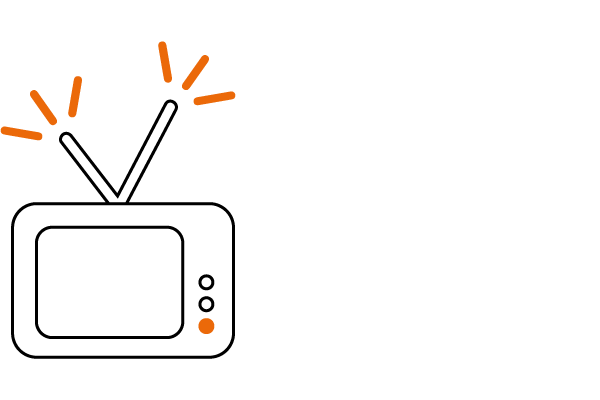
Free media
Because media should ask questions and critically analyse the reality. We need the media which protect the public interest and tackle the needs of the citizens.




